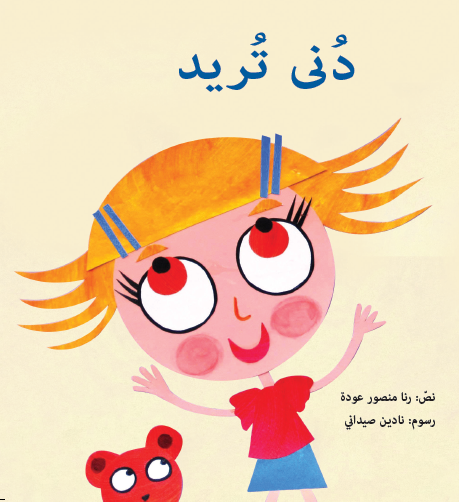
Three-year-old Duna keeps saying “I don’t want,” until a book her father brings home makes a change. This book invites parents to understand and deal with children’s refusal behavior.

Three-year-old Duna keeps saying “I don’t want,” until a book her father brings home makes a change. This book invites parents to understand and deal with children’s refusal behavior.
Duna invites us to her childish and curious world, by her usual sentence "I don't want". But, like most 2-3 years old children, Duna goes through a period which is characterized by "stubbornness and rejection", declaring by that her need to examine the limits of the others and to expose her ...
Read MoreDuna invites us to her childish and curious world, by her usual sentence "I don't want". But, like most 2-3 years old children, Duna goes through a period which is characterized by "stubbornness and rejection", declaring by that her need to examine the limits of the others and to expose her independent personality from parents.
Her will sometimes conflicts with others needs, and by the time she sees the new book, Duna gets more curious. Duna's curiosity and her parents’ teach us how to deal with children behavior at this age, and to support them to make the right decision at their own pace.
Dear parents, we share with you a few suggestions which you may do with your children regarding this book:
المربّية العزيزة،
يتميّز أطفال الثالثة والرّابعة بالعناد، فهم يصّرون على مطلبهم، ويبدو لنا- نحن الكبار- أحيانًا بأنّهم يتحدوننا. في الواقع ينشغل طفل هذا العمر بفحص الحدود التي يضعها الكبار، كجزء من مرحلة استقلاله عنهم، إن كان في قضاء حاجاته اليومية، وإن كان في تكوين ذوقه، وميوله واهتماماته. لا ننسى أيضًا أنّ طفل هذا العمر ما زال في مرحلة الأنويّة، فمن الصّعب عليه مشاركة الآخرين أغراضه، والتّعاون معهم لإنجاز عمل مشترك.
إنّ إدراكنا كمربّيات لهذه المرحلة النّمائية، واحتواء الطّفل ومساعدته على تجاوزها مهمّ جدًّا من أجل تنمية ثقته بنفسه وقدرته على التّواصل السّليم مع أقرانه.